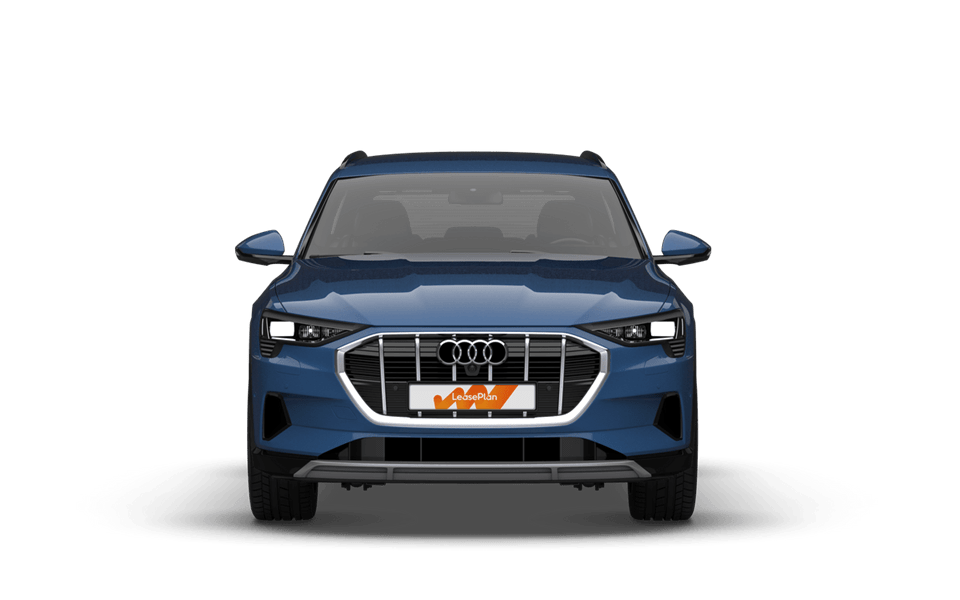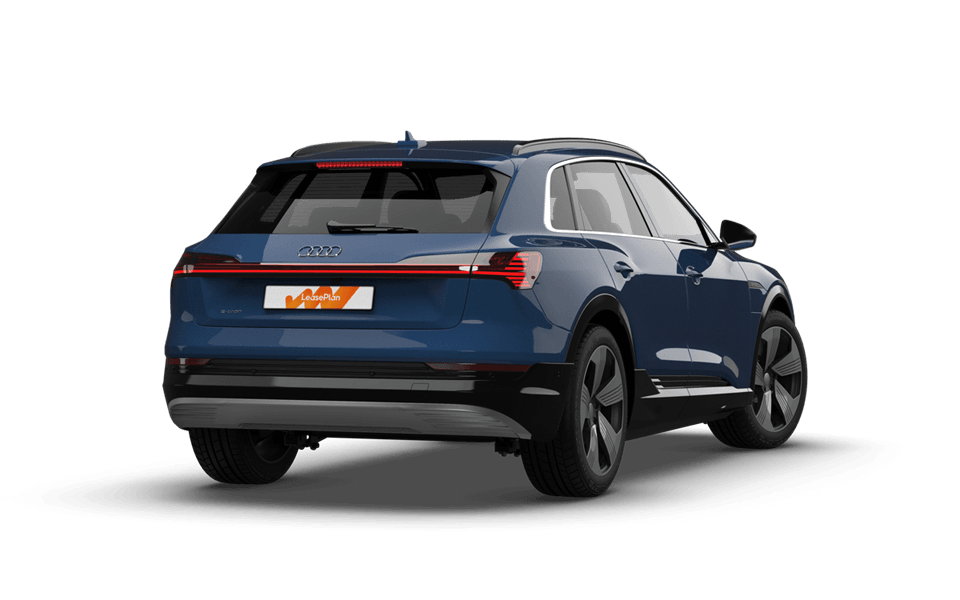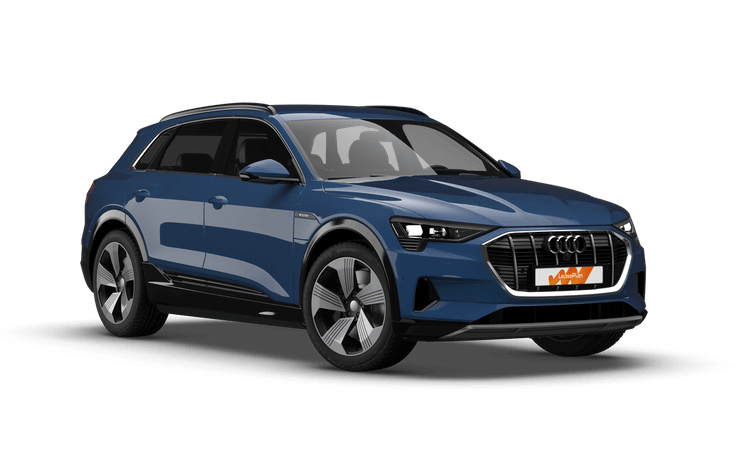
Electric SUV with Audi DNA
Audi has taken all the best from its distinctive DNA and created their first fully electric SUV, the Audi e-tron. Besides representing a whole new electric era for Audi, the car certainly takes aerodynamics to the next level. The E-tron is the first production car available with side cameras instead of mirrors and thus, gives you an even sharper view of your surroundings. Fast and compact with a powerful performance and a long range, this SUV is far more than an electric car - it's an Audi.

Quattro-wheel drive and advanced performance
The E-tron 50 and 55 are both powered by Audi's legendary quattro four-wheel drive. The 71 kWh or 95 kWh battery drives two electric motors, located on the front axle and rear. Both variants include a long range and charge to 80 % in approximately 30 minutes. Drive up to 338 km with the e-tron 50 or upgrade to e-tron 55, and enjoy a longer reach up to 424 km on a just single charge. Standard equipment includes LED lights, 360-degree cameras, electrically-adjustable heated leather seats, and two charge ports; one on each side of the car.
Audi e-tron 55 quattro specifications
Battery | 95 kWh (brutto), 86 kWh (netto) | Up to 424 km range | Fast Charge (36 ->288 km) 25 min |
Specifications | All-wheel drive | 300 kW (408 PS) Total Power | Top speed: 200 km/h |
Miscellaneous | 5 seats | Cargo volume: 660 L | Home Charge (0->360 km) 9 hours |
Luxury for your everyday life
A century of ambitious engineering prowess seamlessly integrated with electric technology, Audi e-tron 55 quattro is a battery-powered crossover that quietly asserts its luxury pretences. With ample space for everyday life, its tech-laden cabin and numerous driver-assistance features, the e-tron takes you and your passengers smoothly and safely to your destination. Designed to outrival in riding comfort and style, the e-tron slips through the air on special alloy wheels and an adaptive air suspension fitted standard.
The taxation on e-tron starts at DKK 545,500 and the monthly leasing fee starts at DKK 5,369 excl. VAT.
Frequently asked questions about electric driving
What is a full electrical vehicle? An electric vehicle, also called an EV, uses one or more electric motors or traction motors for propulsion. The energy used for driving an EV is stored in the battery and the battery is charged at a charge station (at home, at the office or in public).What do I need to charge my electric vehicle? To charge your electric vehicle, you will require a recharging station, a charging cable, and a charging card.How many kilometres can I drive on a fully charged battery? A fully charged battery with a capacity of 40 kW will enable you to drive 200 to 250 kilometers. If you drive sensibly, you will achieve even more. Speed has the most effect on the amount of power drawn down from your battery, so you are advised to keep to the permitted speed limits. There are also other factors that may have an effect on your driving range: - High or low temperatures (resulting in continuous operation of the air conditioning/heating) - A (too) sporty driving style - Driving with a strong headwind - A fully loaded car - Driving uphill for a long period of time Does an electric vehicle require different maintenance than a vehicle with petrol or diesel? An electric vehicle requires less maintenance. This is due to the engine's reduced number of moving parts compared to a conventional combustion motor, which therefore leads to reduced wear. Moreover, oil changes are a thing of the past and the vehicle does not have an exhaust or gears. In addition, the brakes are less susceptible to wear thanks to the regenerative braking capacity.How safe are electric vehicles? Electric vehicles are approved for all safety factors, just like conventional vehicles. In the event of a collision, there is a possibility that some parts may receive an active charge or that short-circuiting causes an electrical fire, though the safety precautions and construction have limited this risk to an absolute minimum.How long will it take to charge my vehicle? That depends on a number of factors: the type of vehicle, the power left in the battery, how fast your vehicle charges, and which type of recharging station you will be using. When charging your vehicle with a standard power socket, approximately 10 hours is required. This is approximately 2 to 4 hours when using a public recharging terminal. When using a fast-charger (primarily located along highways), your battery will reach 80% charge in 30 minutes. Do keep in mind that using fast-chargers is more expensive than standard recharging stations.What does it cost to charge an electric vehicle? This depends on where you will be charging your vehicle. Home recharging stations are the most economical in most situations. The average electric vehicle uses 15 to 20 kWh per 100 km. If your home electricity rate is €0.25 and you drive an average of 15,000 km per year, your charging costs will range between €563 and €750 per year. When charging away from home, your rate is determined by the recharging terminal provider. A starting fee and incentive rate are often charged in addition to the kWh charge. Via www.plugsurfing.com, you'll find an overview of available recharging terminals in Belgium and Europe including the price per kWh.Are you interested or have questions?
We are happy to help you find the solution that best suits your needs. Fill out the form below and we will contact you as soon as possible.



